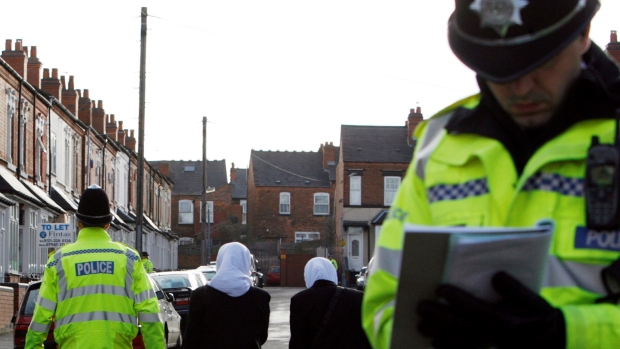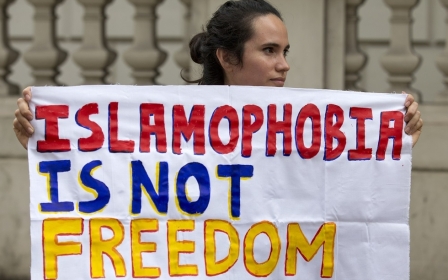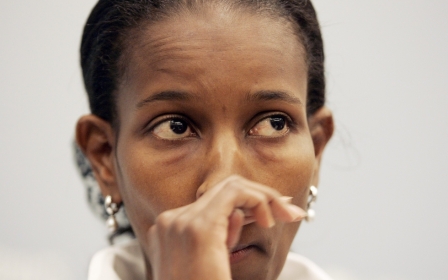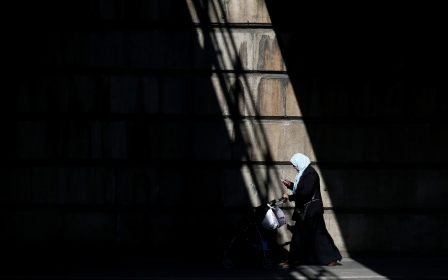Amanda Spielman is undermining British values. Could she be called an extremist?
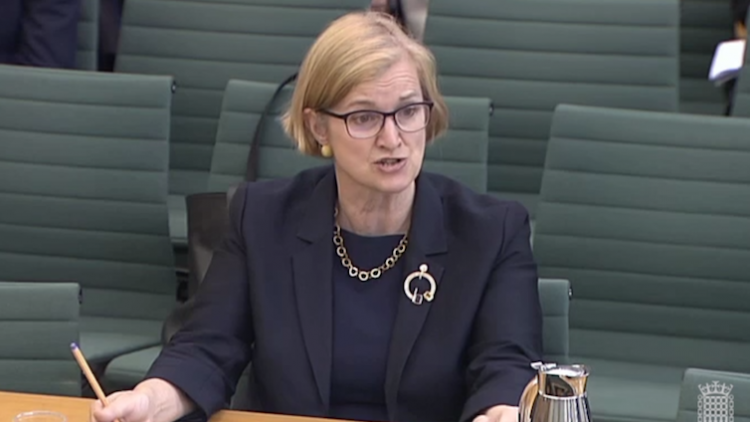
For some months now, one of the most senior UK officials concerned with education and schooling has been preoccupied with the supposed plight of Muslim girls. In November, Amanda Spielman, the chief inspector of Ofsted, called for inspectors to question girls in primary school as young as four or five about their wearing of the hijab.
The reason, she argued, was that the hijab "could be interpreted as sexualisation of young girls". These comments led to an outcry in the Muslim community. On Thursday, Spielman doubled down on her earlier remarks, calling for a "muscular liberalism" to prevent Muslims from using educational institutions to promote "extremist ideology".
British values vs. extremism
In the days after her first statements in November, I was attending my own higher education institution's annual Prevent training workshop with our engaging regional coordinator for Prevent, Jack Slack.
During his presentation, he cited the UK government's official definition of extremism as "vocal or active opposition to fundamental British values, including democracy, the rule of law, individual liberty and mutual respect and tolerance of different faiths and beliefs".
My hand shot up. Jack had just described this as the best definition of extremism we have, but according to this, I argued, Amanda Spielman was very possibly an extremist. She was undermining British values, and more specifically the value of showing "mutual respect and tolerance of different faiths and beliefs".
The little girl who is questioned for wearing the hijab is not engaged in the undermining of British values.
This is a classic example of what liberal democracy is supposed to prevent - trampling the rights of minorities through the tyranny of the majority
Nor are her parents who are exercising their individual liberty under the rule of law in our British democracy. Rather, it is Spielman's suspicion of their innocent sartorial choices and her linking them to "fundamentalist practice" and "extremist ideology" that exemplifies a lack of tolerance and mutual respect towards other faiths and beliefs.
The lecture theatre burst out in laughter, as did Jack, somewhat nervously. But I wasn't trying to be funny. I was attempting to illustrate that both the government and Spielman were entirely wrong on the question of what constituted extremism, and this was leading to the demonisation of members of the Muslim community.
That demonisation being plastered across the national press in the form of yet another negative story about Muslims only compounded this sorry state of affairs.
The inquisition of children
Surely Islamophobia isn't a British value the government wants to promote? The British prime minister has stated explicitly that she wants to tackle the very real scourge of Islamophobia.
But how is it that we end up with senior public figures exemplifying an unacceptable degree of cultural illiteracy about the UK's second-largest faith community. Doubtless she does not intend to be Islamophobic, but her calls for the inquisition of children, and her indiscriminate casting of a widespread religious practice as extremist, are just that.
The above anecdote from a Prevent training session last November also illustrates the challenges we face in understanding extremism. It is, of course, necessary to set down legal guidelines as to what constitutes extremist ideology. But the Muslim community needs to be part of the British government's conversation concerning its strategy for confronting extremism in a more meaningful way.
Such conversations must be representative, since within every community there is a diversity of views on any set of issues. Thus, it's worth recognising that Spielman took up the issue of school girls' hijab in response to a small but vocal group of Muslim lobbyists who are opposed to children wearing the veil.
They present themselves as championing "hard-won freedoms" in a "secular progressive democracy" against the "regressive practices of gender inequality” promoted by "religious extremists".
Implicit demonisation of Hijab
However, such a view is far from the only perspective in the wider Muslim community. Indeed, its implicit demonisation of the hijab is something that would alienate large swathes of Muslim women in Britain.
Polling of the Muslim community in 2016 by the think tank, Policy Exchange, indicates that: "as a whole … the issue of school clothing would appear to be one where the greater social conservatism of British Muslims becomes apparent, in comparison with their non-Muslim neighbours".
In a representative survey, they note that 44 percent of British Muslims agreed that schools should be able to require the wearing of "a hijab or niqab" as a part of the uniform; while 32 percent disagreed.
The Muslim community needs to be part of the British government's conversation concerning its strategy for confronting extremism in a more meaningful way
The Muslim anti-hijab lobbyists above may at most be representative of the 32 percent, but the majority of Muslims in this country clearly do not share their views. By contrast, the report notes that 65 percent of British society as a whole disagreed with this proposition, with 50 percent "strongly" opposed.
The Muslim lobbyists, who include the government's controversial new anti-terrorism tsar, Sara Khan, could thus be seen as attempting to undermine the rights of a poorly understood ethnic minority community by stoking the fears of the majority against them.
This is a classic example of what liberal democracy is supposed to prevent - trampling the rights of minorities through the tyranny of the majority. So much for their liberal credentials.
A better way forward
I have argued elsewhere that an important aspect of countering extremism within Britain is promoting a meaningful sense of belonging among British Muslims. Muslims who feel they are full members of this society make for better citizens.
But this is undermined by the constant stream of negative news that highlights "the Muslim problem", and the tokenistic co-opting of Muslim figures who only serve to further the demonisation of large sections of the British Muslim community. Rather we should be broadening our horizons and welcoming "mutual respect and tolerance of different faiths and beliefs".
Amanda Spielman's unfortunate remarks do not need to be just another wedge between the socially conservative Muslim community and an illiberal secularist public sphere. They could be an opportunity for broader conversations with a representative range of Muslim community members and organisations like the Muslim Council of Britain who can help promote greater social cohesion as well as combat extremism.
If this were to be the outcome of the uproar over such remarks, the head of Ofsted could snatch victory from the jaws of defeat.
- Usaama al-Azami is Departmental Lecturer in Contemporary Islamic Studies at the University of Oxford. He completed his PhD in Near Eastern Studies at Princeton University. His research critically examines contemporary Islamic reform and the politics of the ulama. He completed his BA in Arabic and Islamic Studies at Oxford University and his MA at Princeton. He may be followed on Facebook and Twitter (@DrUsaama).
The views expressed in this article belong to the author and do not necessarily reflect the editorial policy of Middle East Eye.
Photo: Amanda Spielman attends a parliamentary education select committee session in November 2017 (Screengrab)
Middle East Eye propose une couverture et une analyse indépendantes et incomparables du Moyen-Orient, de l’Afrique du Nord et d’autres régions du monde. Pour en savoir plus sur la reprise de ce contenu et les frais qui s’appliquent, veuillez remplir ce formulaire [en anglais]. Pour en savoir plus sur MEE, cliquez ici [en anglais].



